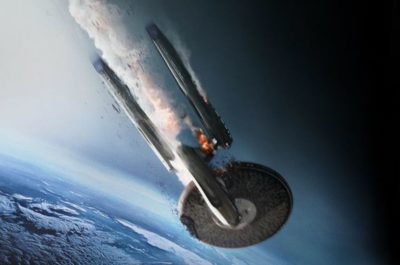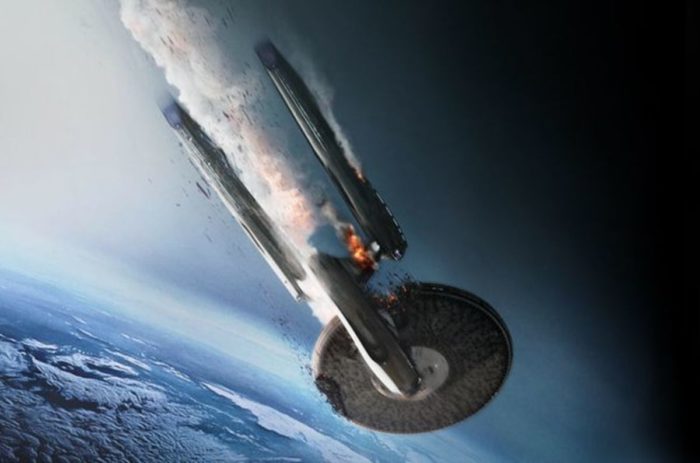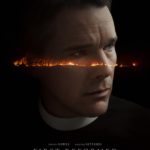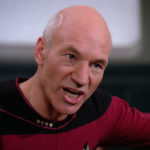‘Star Trek’ Franchise Doesn’t Know Where to Boldly Go
Yesterday fan sites lit with the reluctant rumors that Paramount had quit working on Star Trek 4.
No, not The One with the Whales, but the followup to the rebooted series (in)famously started by director J. J. Abrams.
Quoth Deadline, in a story about something Game of Thrones, blah blah blah. It somewhat buries the real lede for Trek fans:
Earlier this year, Clarkson was the first female director to be tapped to direct a Star Trek movie when she was hired to helm the fourth feature in the current series. That project has since been shelved.
If this news proves true, I feel some sense of ambivalence mixed with disappointment.
The recent Star Trek films: flawed but promising
Unlike many fans, I rather enjoyed Abrams’ reboot/restart of the franchise in Star Trek (2009). Sure, the film clearly offered more of an “internet meme” version of Star Trek. Parts seemed designed just to make casual fans feel included. Ha ha, yep, there’s one of those green alien women like Captain Kirk was always hitting on! Guffaw! And we all know redshirts always die!
Despite this, the film injected genuine joy into this new Trek timeline. Abrams’s team clearly respected Star Trek and the public perception of Star Trek. They did not deconstruct it. Nor did they simplistically rip off a previous Trek storyline. (That is, unlike the second film, Star Trek into Darkness.)
The same positivity held true for the last film, Star Trek Beyond. Of course, some fans despise the third film. Some of these shared “good riddance” style comments to the seeming announcement about the fourth film being cancelled. But I thought Beyond surprisingly blended the fun of Star Trek (The Original Series) along with expected epic-movie scale. Even better, they found time to explore a very Trek-like question about humanity. The story asked: What happens to humans of an earlier era, “left behind” by humanity’s progress?
Star Trek Beyond also cruised around several epic-movie tropes. The last film, Star Trek Into Darkness, didn’t do this, and annoyed many fans in the process. And the film dared to linger on the ideas and wonders of a potential (yet very secular) human future. I still love the film’s introduction of the space station Yorktown, accompanied by an especially soaring musical theme by Michael Giacchino.
Rumors held that a fourth film would bring back James Kirk’s deceased father, George Kirk, via time travel. In Star Trek (2009) he was briefly played by Chris Hemsworth. (Two years later, Hemsworth found fame as Marvel superhero/god Thor.) Later, other rumors held that Kirk actor Chris Pine and Hemsworth weren’t willing to settle for the fourth Trek film’s more modest budget. They exited the project.
Then there was something else about Quentin Tarantino wanting to make a Trek movie too …
And the orbit of Star Trek: The Fourth Rebooted Movie must have kept decaying.
Isn’t Star Trek better on TV anyway?
Unlike this time two years ago, I’m also less optimistic about Star Trek‘s chances on TV.

My pessimism is based on two reasons.
First, too many vocal fans (like fans of Star Wars, the earlier DC hero films, and basically any big franchise now) clash violently over What the Franchise Truly Is. So whoever’s trying to drive the franchise can’t please anyone. “Fans” just keep wailing in the back seat about whether we’re there yet, and that other fan pushed me, and casting so-and-so is soooo stuuuupid.
Second, the original Star Trek represents a classic, secular humanist copy of an already-faded Judeo-Christian worldview. As such, the stories, goofy as they could be, had plenty of moral heart to them.
The same held true for Star Trek: The Next Generation (though it had to improve mightily after its first two seasons).
And Star Trek: Deep Space Nine remains, I think, the best Star Trek series, partly because its storylines embraced other alien cultures’ religions as a challenge to Federation humanism. (In DS9, other characters challenged the Federation worldview by name, rather than the story simply assuming this worldview as the unquestioned default.)1
But now we’re several spinoffs and decades later. We’ve had enough variations on the Trek recipe. Fans have “baked in” their nostalgia for older versions until the edges are burnt. Now fans and creators will keep fighting about What Star Trek is All About.
Is it bombastic action movies based on villain revenge plots?
Or slow-moving, character-driven television drama?
Action television drama with easily identifiable good guys?
Or pop-philosophical meditations on the nature of good and evil and the human capacity for either?
To all those false-binaries, I answer “yes.” Star Trek has included, and can include, all those ideas. But the current television iteration, Star Trek: Discovery, tries at once to go all of those directions. And these expectations pull it in all four of those gravitational forces at once.
Then add another story physics-twisting anomaly: the popular “prestige TV” drive to make everything as “grimdark” as a Game of Thrones, all screams and torture, fleeting nudity, and hints of nihilism. These have (so far) ruined Star Trek: Discovery. In fact, the series’s final episode was its lowest point. A full nine-tenths of the episode featured the crew members idling about a Klingon strip club. Of course the story showed soft-porn scenes. Each crew member received the designated moment of exploitation. This was followed by ten minutes of rapid plot exposition and loose-end-tying, and then that was it. Dreadful writing. I instantly cancelled my CBS All Access subscription.
Anyway, all that nonsense represents a fifth gravitational force yanking any Star Trek story in another direction.
And the demand to add trendy themes drawn from the wildly popular religion of Sexualityism? That’s a sixth gravitational force in another direction.
Captain! The engines can’t take it.
Perhaps more than one Star Trek TV series2 will help. The nihilistic sorts can make their series, the nostalgic sorts another. I’ll err on the side of the genuinely nostalgic series, myself.
But I’m not optimistic about Star Trek‘s chances on TV either. We’re too far removed from the earlier series’ moral themes, based on a copy of a copy of a copy of something like Christianity. Our culture has also decayed so much since then. Now, even a secular humanist summons to explore the universe and evolve might sound self-righteous. After all, why “boldly go” anywhere else when we have so much to explore about ourselves right here?
- See my portion about Deep Space Nine in our Star Trek retrospective here at Christ and Pop Culture. ↩
- This includes a series they’re making with Patrick Stewart returning as Jean-Luc Picard. ↩









































I agree, DS9 is the best of Trek.
Star Trek today is certainly being pulled in many directions, trying to please everyone, and fans lately have been very aggressively vocal about what they like, and especially about what they don’t like. I think you’re right that having so many projects in the pipeline will help with that. There may be something for everyone. Of course, being the die-hard Trek fan, I’ll probably watch them all.
I think a lot of the troubles with Discovery season 1 came from “too many cooks in the oven”. New people taking on other people’s half finished ideas and then taking them in their own directions. We ended up with a very uneven season. (it remains to be seen if the firing of Aaron Harbets and Gretchen J. Berg will have a similar impact on season 2.)
You’re right, the last episode was a disappointing and weak end to the series. In fact, I’d say the last two episodes were pretty terrible. Despite all this, the season also delivered some truly fantastic episodes (in my opinion) such as “Lethe” and “Despite Yourself”, and “What’s Past is Prologue” was a thrilling end to one particular arc (and would have made a better season finale than “Will you Take my Hand”.
All in all, I’m actually still pretty enthusiastic about Trek’s future on TV. From what I’ve seen on the trailers, Discovery season 2 will have a lot to offer. They seem to be doing what I’ve always wanted from a modern Trek show. They’re taking the core idea of “boldy going” – space exploration – but advancing it from the ‘planet of the week’ concept into an alien mystery that will take them all season to solve. Will the season end up being exactly what I dream of? Almost certainly not, but it’s a great starting point. I’m also very interested to see how they tackle the themes of science and faith (which have been said to be major themes in the season). One can only hope they do it at least do it as well as DS9 did.